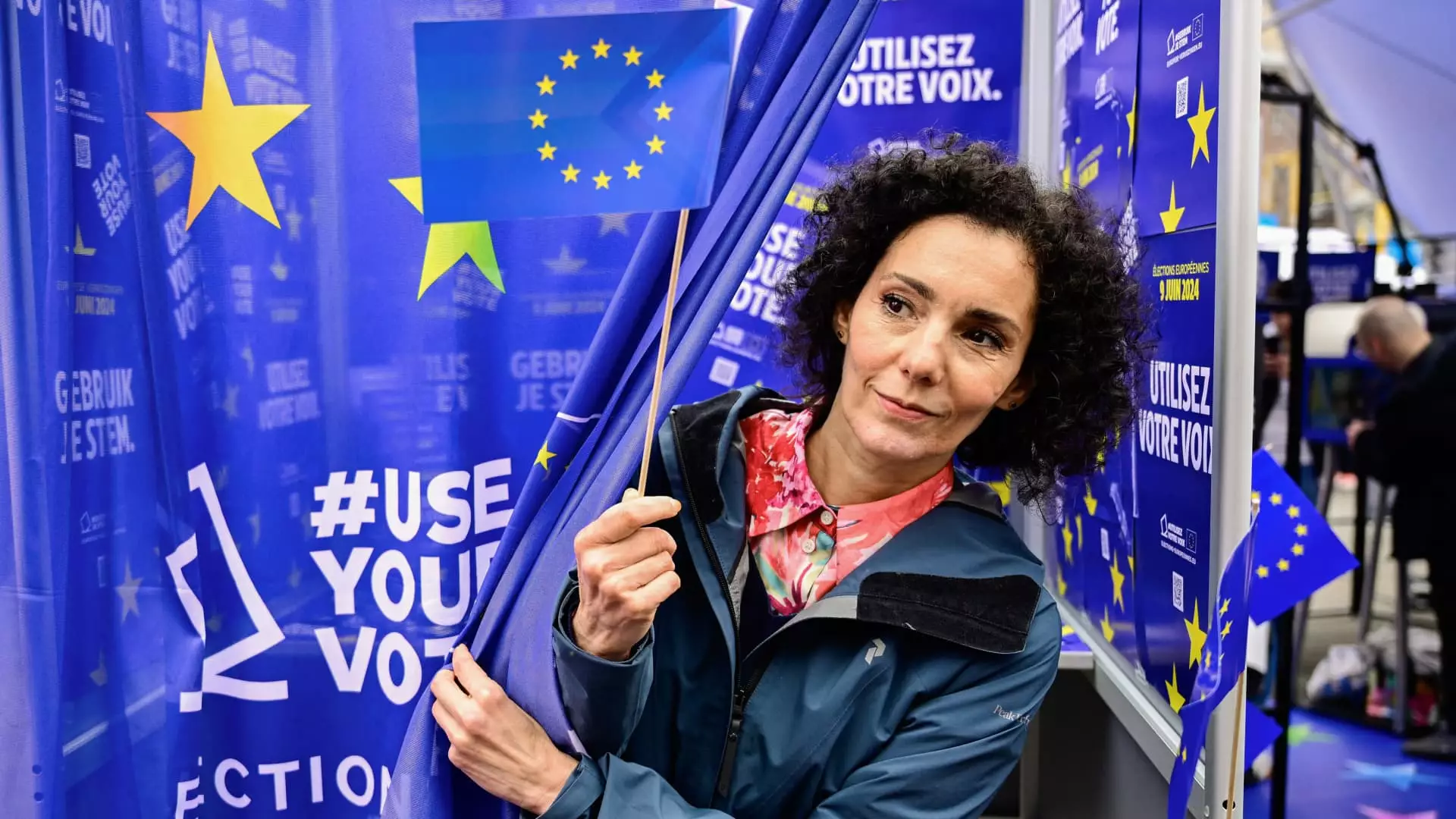The political landscape of the European Union is on the verge of a significant transformation, as voters from the 27 member states prepare to cast their ballots in the upcoming election. There is a noticeable rise in support for far-right parties, indicating a potential shift towards more protectionist policies within the bloc. Analysts are predicting a decrease in climate targets and an increase in defense spending as a result of the election outcome. This wave of change has implications not only for Europe but also for the global community.
The election of U.S. President Joe Biden in 2020 was met with optimism by European Union lawmakers and officials, who viewed it as a new beginning in the transatlantic relationship. The previous administration’s confrontational approach under Donald Trump had strained relations, leading to disagreements on trade, climate agreements, and other key issues. However, the future of transatlantic relations remains uncertain as U.S. voters head to the polls later this year. The EU has come to the realization that it cannot solely rely on the U.S. for defense, especially given Trump’s past remarks regarding NATO protection.
The European Commission is expected to implement new tariffs on Chinese electric vehicles shortly after the election, reflecting the fragile balance in China-EU relations. While Brussels acknowledges China as a strategic rival, it also seeks collaboration on climate initiatives and geopolitical matters. The EU’s stance as a global leader in climate advocacy may face challenges with the arrival of more climate-skeptic politicians in Brussels. This shift towards the right could result in a slowdown of environmental legislation and a revisiting of previous commitments, such as phasing out conventional cars by 2035.
The potential inclusion of Ukraine as a member of the European Union raises questions about the bloc’s willingness to adapt and change. Formal negotiations for Ukraine’s membership could commence in the near future, setting the stage for extensive discussions on EU reforms. The EU may need to transition towards qualified majority voting to streamline decision-making processes, especially as the number of member states continues to grow. The prospect of Ukraine joining the EU also raises concerns about significant shifts in financial contributions and potential resistance from countries that currently benefit from EU funds.
A survey conducted across Europe highlighted the priorities of citizens, with the economy, social justice, and job creation emerging as the most crucial factors for the future of the continent. This emphasis on economic stability is vital as the EU navigates through recovery from a recent inflation crisis. Structural challenges, including demographic trends, industrial investment disparities with the U.S., and stagnating productivity growth, present additional hurdles for the EU to address in the coming years.
The upcoming elections in the European Union have the potential to reshape policies, relationships, and priorities within the bloc and beyond. As the EU grapples with internal shifts, external pressures, and economic uncertainties, the need for strategic decision-making and cohesive reform efforts becomes increasingly apparent. The outcomes of the elections will not only impact the future direction of the European Union but also influence global dynamics and partnerships in the years to come.



Leave a Reply